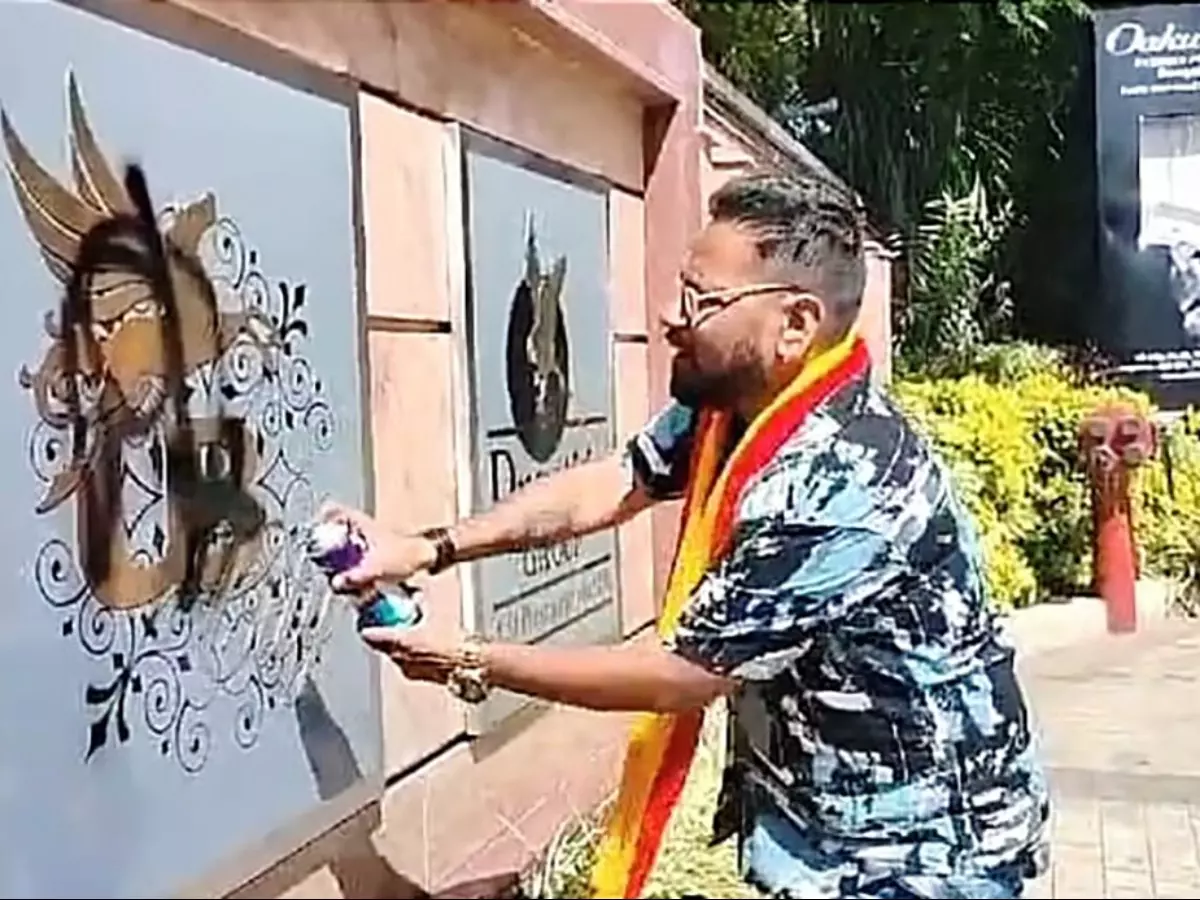What Is Behind The 60 Per Cent Kannada Signboard Controversy In Bengaluru?
Members of the Karnataka Rakshana Vedike (KRV) have taken to the streets of Bengaluru. They are protesting against the government's decision to impose a '60 per cent Kannada' rule.

After a brief lull 'language war' is back in Karnataka, with Karnataka Rakshana Vedike going on the streets of Bengaluru to enforce a '60 per cent Kannada on signboards' rule.
Over the past few days, members of the KRV's Narayana Gowda faction have targeted business establishments in Bengaluru and damaged their signboards and nameplates which did not use Kannada.
 BCCL
BCCL
Why pro-Kannada groups are protesting
The activists took out rallies in various parts of the city, especially in the business hubs such as MG Road, Brigade Road, Lavelle Road, UB City, Chamarajapet, Chickpet, Kempe Gowda Road, Gandhi Nagar, St Marks Road, Cunningham Road, Residency Road and Sadahalli Gate near Devanahalli.
The activists claimed that the business establishments were "undermining the official language of Karnataka, which is Kannada."
Many malls, shops, commercial buildings, companies and factories, especially multinational companies, faced the ire of KRV activists, who damaged and defaced signboards and nameplates which were not in Kannada.
 BCCL
BCCL
What the rule says
The Bruhat Bengaluru Mahanagara Palike (BBMP) has given time till February 28, commercial stores under its administration to install 60 per cent Kannada language nameplates, which, if failing to do so, will attract legal action.
However, pro-Kannada outfits like KRV have been enforcing the mandate even before the deadline.
"People from various states are doing business in Bangalore. But they don't put Kannada nameplates on their shops. They are only putting up the nameplates of their shops in English. If they want to stay back in Bangalore then they have to put nameplates on their shops in Kannada or else they have to move from Karnataka to other states," Narayana Gowda said.
 BCCL
BCCL
Protest against other languages
Kannada is the official language of Karnataka and Pro-Kannada groups have always been opposed to the use of other languages including English and Hindi in the state.
The friction has aggravated in recent years with the mass migration of Hindi speakers from North India following the IT boom in Bengaluru.
Pro-Kannada outfits have long seen the prominent use of Hindi along with Kanada as 'Hindi imposition'.
In 2017 the Bengaluru Metro had faced the ire of pro-Kannada outfits after the names of metro stations were displayed in Hindi along with Kannada and English.
The government has also made Kannada mandatory in schools and knowledge of the language essential for employment in the state government.
 BCCL
BCCL
Support across party lines
Since language is a highly sensitive matter in Karnataka, the ongoing protests by the pro-Kannada groups have also received widespread political support, cutting across party lines.
Union Minister Pralhad Joshi said that he does not support violence but he agreed with the demand of the predominant display of Kannada in nameplates and signboards.
He had questioned why shopkeepers insist on writing signages only in English. ¡°This is not England,¡± he stated. The shop owners should also understand the sentiments and necessity, he added.
 BCCL
BCCL
Karnataka Deputy Chief Minister D K Shivakumar on Thursday said the government will not allow anyone to take law into their own hands.
"We are not against the pro-Kannada activists but they should not take law into their own hands. We are not ready to accept damage caused to the properties in Bengaluru," Shivakumar said.
"We have to save Kannada and we respect those who fight for saving Kannada but that should not mean that the government will shut it's eyes to vandalism," he added.
Kannada and Culture Minister Shivaraj Tangadagi said the government was planning to revoke the licences of commercial establishments if they fail to adhere to the rule that 60 per cent of signboards must be in Kannada.
For more news and current affairs from around the world, please visit Indiatimes News.
